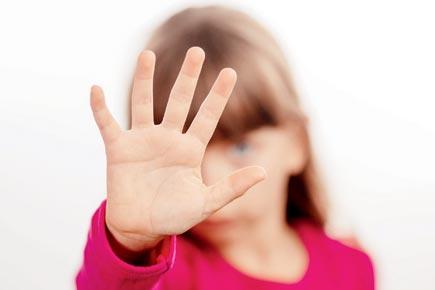Last week, we launched HEAL (Help Eradicate Abuse through Learning), my second NGO after the launch of The Foundation over 10 years ago. HEAL is dedicated to the removal of child sexual abuse from our country. Easy to pledge, difficult to achieve


More than 53 per cent of children in this country have been sexually abused
ADVERTISEMENT
 Last week, we launched HEAL (Help Eradicate Abuse through Learning), my second NGO after the launch of The Foundation over 10 years ago. HEAL is dedicated to the removal of child sexual abuse from our country. Easy to pledge, difficult to achieve.
Last week, we launched HEAL (Help Eradicate Abuse through Learning), my second NGO after the launch of The Foundation over 10 years ago. HEAL is dedicated to the removal of child sexual abuse from our country. Easy to pledge, difficult to achieve.
Consider the government's own findings from their last research conducted with 12,447 children from all income groups across the country, in 2007. According to this survey, more than 53 per cent of all children in this country have been sexually abused. If we have approximately 400 million children (defined as anybody below 18 years of age) in India today, we're talking of over 200 million children having been sexually abused.
That's not just alarming, it's a national emergency. The statistics are eye-opening: CSA happens to girls and boys equally. It happens in households across the income spectrum. It happens across the country, from villages in forgotten districts to the poshest parts of Delhi and Mumbai. It happens equally in educated and illiterate families. Most chillingly, over 50 per cent of child sexual abuse cases are perpetrated by someone from either within the family or a close friend/ neighbour/ employee of the family. If the sexual abuse of children is so rampant, why don't we hear more about it?
Independent studies throw up two principal reasons: one, this is the one crime where the child transfers all the shame on him/herself (this happens in many cases of the rape of adult women too), thinking 'this must be my fault' or fearing censure from the adults in the family, 'would anyone believe me if I told them?' Two, the conversation about sex and sexuality is automatically deemed to be lascivious by conservative, patriarchal societies like India. So if a child does alert family members about what is being done to him/her, they are immediately told to keep quiet about it, or even worse, 'are you sure?'
So what do we, at HEAL, do about the problem? Three things: One, prevention. We believe educating adults and children about CSA can make a huge difference in the 53 per cent statistic. Over nine years, we've conducted more than 600 workshops in schools, housing societies and clubs. The workshops are two distinctly different models, one to educate and sensitise adults — parents, teachers, administrators, and the other to children — a gentle but clear communication of what CSA is and how they need never fear that they will not be believed or blamed if they are ever sexually abused. Two, counselling. We have 10 psychologists on our panel who have counselled over 60 survivors of CSA. Three, collaboration and policy. To that end, we fund and organise an annual seminar where every single player in the field of CSA is invited to talk, share and collaborate collectively to make this movement more effective in the years to come.
Perhaps most tragic of all is the number of NGOs working on CSA in India today. At last count, more than 4,00,000 NGOs were involved in education in the country. CSA? 31. 31 NGOs dealing with 200 million children is inconceivable. Why don't we have more in the field? There are two fundamental reasons – it's difficult (!) to get funding for this cause and there's no glamour in it. But CSA is all around us. Do me a favour. Next time you are with your friends, ask how many of them have faced any kind of sexual abuse when they were young. The answer will shock you.
Send your feedback to mailbag@mid-day.com
The views expressed in this column are the individual's and don't represent those of the paper
 Subscribe today by clicking the link and stay updated with the latest news!" Click here!
Subscribe today by clicking the link and stay updated with the latest news!" Click here!






